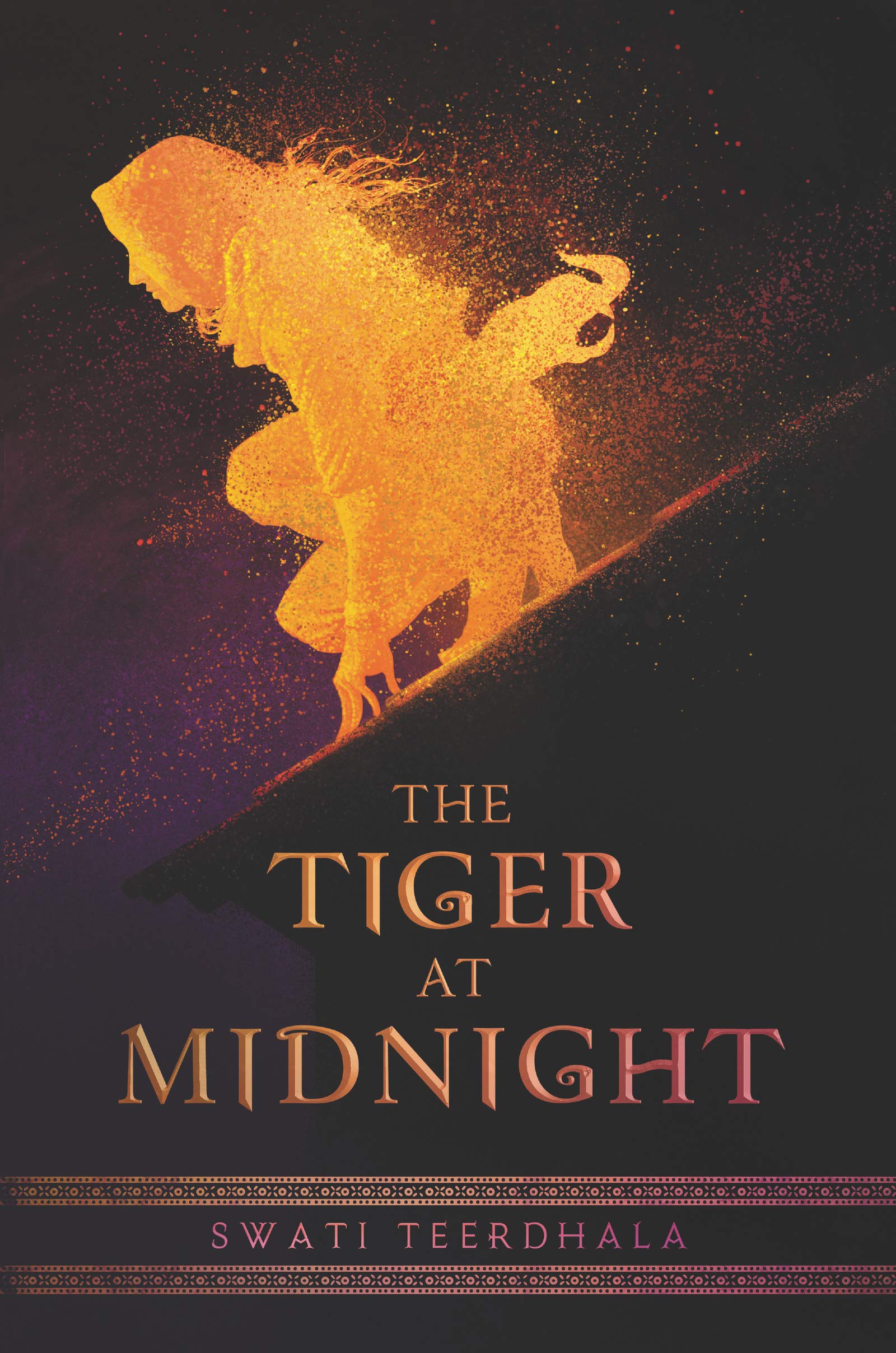A Review of Swati Teerdhala’s The Tiger at Midnight (Katherine Tegen Books, 2019).
By Stephen Hong Sohn 
In this post, I review Swati Teerdhala’s debut novel The Tiger at Midnight (Katherine Tegen Books, 2019). And let me be clear. This book had to win me over. Many of you know how I feel about the often-requisite romance plots that appear in young adult paranormal/speculative fictions, and I was occasionally just not-on-the-boat with the two major characters that anchor this book. In any case, let’s get us a description from the official HarperCollins site:
“The first book in an epic heart-pounding fantasy trilogy inspired by ancient Indian history and Hindu mythology, perfect for fans of Sabaa Tahir and Renée Ahdieh. . .Esha lost everything in the royal coup—and as the legendary rebel known as the Viper, she’s made the guilty pay. Now she’s been tasked with her most important mission to date: taking down the ruthless General Hotha. Kunal has been a soldier since childhood. His uncle, the general, has ensured that Kunal never strays from the path—even as a part of Kunal longs to join the outside world, which has only been growing more volatile. When Esha and Kunal’s paths cross one fated night, an impossible chain of events unfolds. Both the Viper and the soldier think they’re calling the shots, but they’re not the only players moving the pieces. As the bonds that hold their land in order break down and the sins of the past meet the promise of a new future, both the soldier and the rebel must decide where their loyalties lie: with the lives they’ve killed to hold on to or with the love that’s made them dream of something more.”
The immediate reference to Sabaa Tahir and Renée Ahdieh is pretty spot on. Teerdhala is operating with what I would call the neo-Oriental tale genre. It’s not quite Orientalist in the way that it has been traditionally defined as a kind reductive flattening. Nevertheless, it’s pretty clear that Teerdhala is working off of South Asian contexts despite the speculative terrains that she’s created. She meshes these ethnic references amongst a landscape filled with shapeshifters, assassins, and apocalyptic occurrences, AND OF COURSE the epic love story that must move us all (I’m not entirely being sarcastic here, as I was moved LOL). The premise brings us to a kind of Romeo and Juliet model: Kunal and Esha are pretty much on the opposite sides of the social spectrum, so Teerdhala gives herself a monumental task. How can Kunal, who is part of an imperial project, be with Esha, who is a revolutionary seeking justice for the people? Oh, and let me put in some spoilers here, so look away lest you receive far more information than you would like. . . So, I was thinking to myself: there’s no way that this ONE guy Kunal can be that much better than his imperial fellow soldiers, but Teerdhala’s got a sense of this individual’s history and backstory, one that makes his entry into Empire much different. In fact, he’s far more different than anyone ever realizes until about three hundred pages into the novel. That was the point where I thought to myself: okay, Kunal and Esha make sense. Otherwise, I was quite frankly not won over by Kunal. He seemed, in my mind, to be a kind of apologist: hey, empire can’t be ALL that bad, really, I mean, right? In any case, Teerdhala allows the love plot to really structure the momentum, which is why this type of book isn’t one that’s going to win me over right away. Nevertheless, once the plot moves away from the cat-and-mouse dynamics that bog down the first half of the book, the story really takes off. The more fascinating characters—and perhaps I’m betraying my own idiosyncrasies as a reader—are the rebels that populate the last quarter of the book. Teerdhala is also well aware that even the so-called revolutionaries-for-justice have their own motivations and problems related to intrigue, so not everyone can necessarily be trusted. It is in this kind of murky landscape that the novel works best, revealing that the line between good and evil is one as mercurial as shapeshifting.
Buy the Book here:
https://www.harpercollins.com/9780062869210/the-tiger-at-midnight/
Review Author: Stephen Hong Sohn
Review Editor: Nicholas Clark
Web Posting: Xiomara Forbez
If you have any questions or want us to consider your book for review, please don't hesitate to contact us via email!
Prof. Stephen Hong Sohn at sohnucr@gmail.com
Nicholas Clark, PhD Student in English, at nclar004@ucr.edu